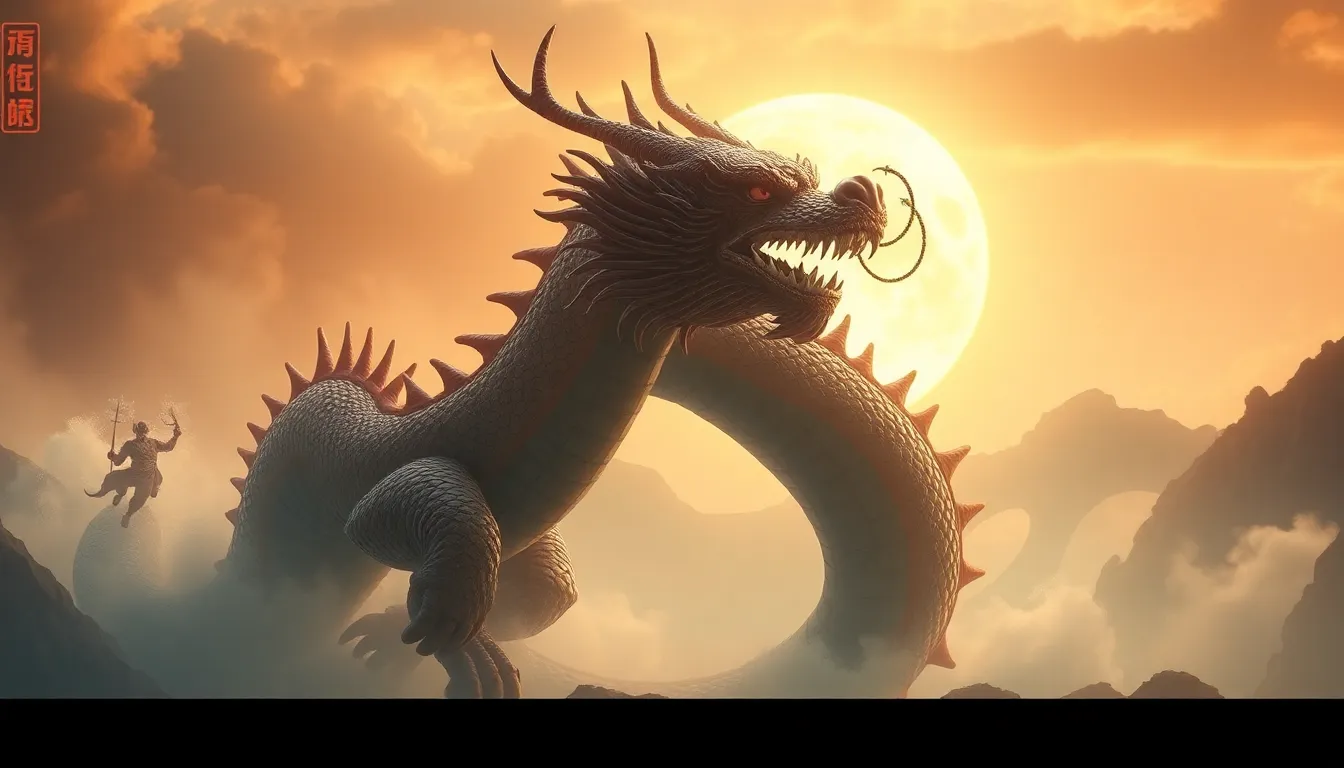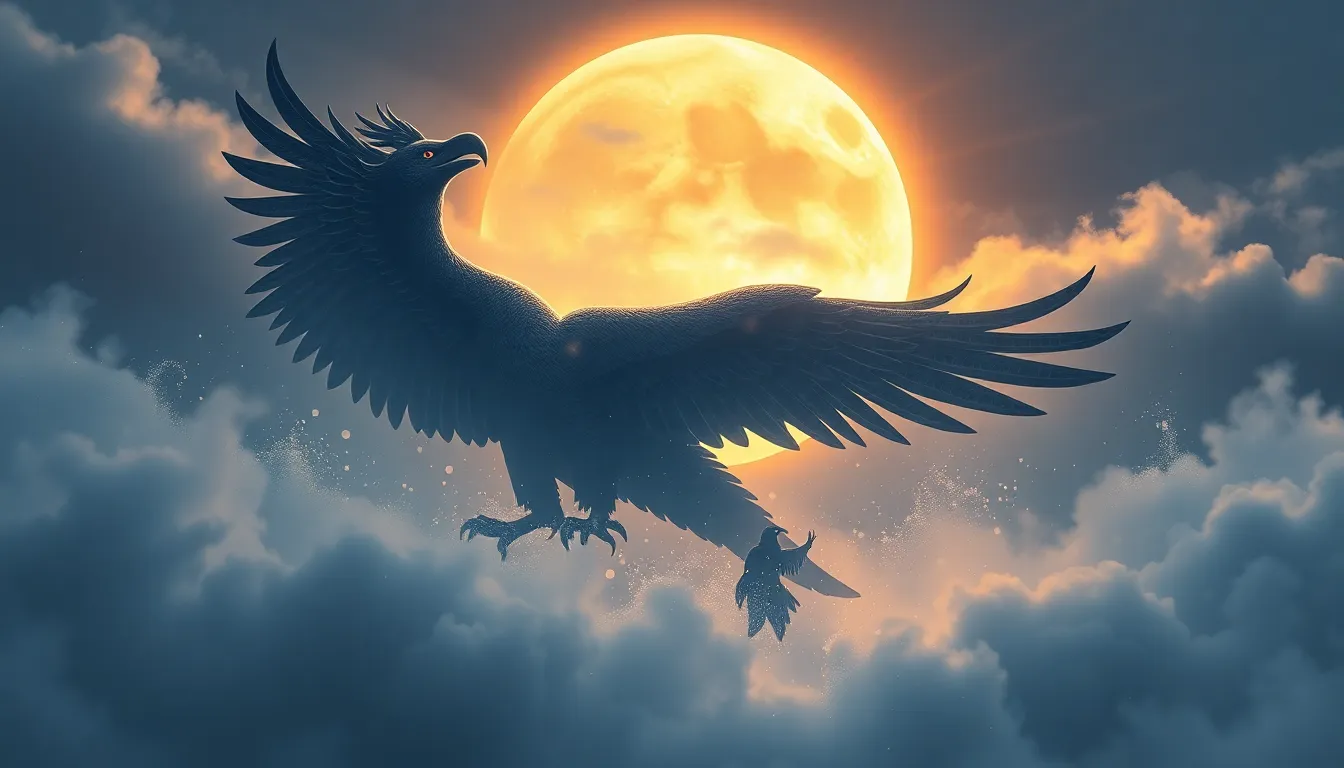The Depths of Chinese Mythology: Exploring the Dragon King and his Realm
I. Introduction to Chinese Mythology
Chinese mythology is a rich tapestry woven from centuries of history, culture, and tradition. It serves not only as a means of storytelling but also as a framework for understanding the world and the forces that govern it. Myths and legends reflect the values, fears, and aspirations of the Chinese people, making them an integral part of their cultural identity.
Among the myriad of figures in Chinese mythology, the Dragon King stands out as a central and powerful symbol. Revered as the ruler of water and weather, he embodies both the majestic and fearsome aspects of nature. His stories resonate deeply within the fabric of Chinese folklore, illustrating the complex relationship between humanity and the natural world.
II. The Dragon King: An Overview
The Dragon King, known as “Long Wang” in Mandarin, is a prominent figure in Chinese folklore. He is often depicted as a regal dragon with the ability to control water, storms, and rain. The Dragon King symbolizes strength, benevolence, and the duality of nature’s beauty and ferocity.
He is known by various names and titles, including:
- Long Wang – Dragon King
- Tianlong – Celestial Dragon
- Shuihu – Water God
- Yulong – Jade Dragon
Each title reflects his multifaceted role within the pantheon of Chinese deities, emphasizing his dominion over the waters and weather.
III. The Dragon King’s Realm: The Underwater Kingdom
The Dragon King’s domain is often described as a magnificent underwater palace, known as “Dragon Palace” or “Longgong”. This palace is said to be adorned with precious jewels, vibrant corals, and surrounded by schools of colorful fish. It serves as a representation of the beauty and mystery of the ocean depths.
The geography of the Dragon King’s realm includes:
- Coral Gardens – Fields of vibrant coral that serve as habitats for various marine life.
- Crystal Caves – Glimmering caves filled with treasures and magical artifacts.
- Rivers and Lakes – Bodies of water that connect the Dragon King’s palace to the mortal world.
Within this realm, a host of creatures and spirits reside, including fish, turtles, and other aquatic beings, each playing a role in the ecosystem of the underwater kingdom.
IV. The Dragon King in Chinese Cosmology
The Dragon King holds a crucial role in Chinese cosmology, particularly in relation to the natural world. He is often seen as a deity who governs rainfall, floods, and droughts, making him a vital figure for agricultural societies dependent on the whims of nature.
His influence extends to various mythological creatures and deities, forming connections with:
- The Four Seas – Each of which is governed by a different Dragon King.
- The Weather Gods – Deities that work alongside him to control the elements.
- Other Dragons – Representing different aspects of nature and celestial phenomena.
This interconnectedness emphasizes the Dragon King’s importance in maintaining harmony within the universe.
V. Tales and Legends of the Dragon King
Numerous tales and legends surround the Dragon King, illustrating his power and benevolence. One notable story involves his quest to help a drought-stricken village by summoning rain, showcasing his role as a protector and benefactor of humanity.
These stories often highlight:
- The Dragon King’s mercy – When he intervenes to save those in need.
- The consequences of disrespect – Stories that warn against angering the Dragon King.
- Interactions with humans – Encounters that reveal his wisdom and strength.
Such narratives serve not only to entertain but also to impart moral lessons that resonate with cultural values.
VI. The Dragon King in Art and Literature
The Dragon King has inspired countless works of art and literature throughout Chinese history. Traditional Chinese paintings often depict him in elaborate forms, surrounded by waves and aquatic creatures, showcasing both his majesty and the beauty of his realm.
In literature, the Dragon King appears in classic texts such as:
- The Classic of Mountains and Seas – A foundational text of Chinese mythology.
- Journey to the West – Where he plays a role in the adventures of the monk Xuanzang.
Modern media, including films, television shows, and graphic novels, continue to interpret and adapt the Dragon King’s stories, ensuring that his legacy endures.
VII. The Dragon King in Contemporary Culture
The Dragon King’s influence can be seen in various contemporary cultural practices. Festivals dedicated to him, such as the Dragon Boat Festival, celebrate his legacy and the importance of water in agriculture and community life.
In popular culture, the Dragon King is often reimagined in:
- Films – Where he is portrayed as a heroic or villainous character.
- Video Games – Featuring him as a powerful entity or boss character.
- Merchandise – Toys and collectibles that celebrate his image.
This adaptability speaks to the Dragon King’s enduring relevance in a rapidly changing world.
VIII. Conclusion
In conclusion, the Dragon King is a pivotal figure in Chinese mythology, embodying the complex relationship between humanity and the natural world. His stories, symbolism, and cultural significance reflect the values and beliefs of the Chinese people across generations.
The enduring legacy of the Dragon King and his realm continues to inspire and resonate in today’s society, reminding us of the power of nature and the importance of respecting the forces that shape our lives.



